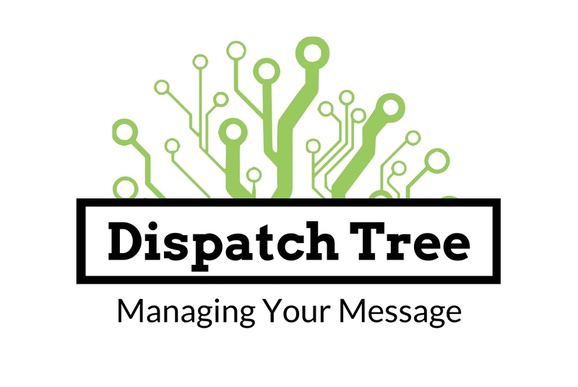Event planning is a dynamic and multifaceted profession that plays a crucial role in bringing memorable experiences to life. Whether it's a corporate conference, a wedding celebration, or a community fundraiser, event planner are the masterminds behind the scenes, orchestrating every detail to ensure a seamless and unforgettable event. In this article, we'll explore the essential aspects of event planning, the skills required to excel in this field, and the impact of effective event management on creating successful experiences.
The Role of an Event Planner
An event planner is responsible for conceptualizing, organizing, and executing events of various scales and types. Their role encompasses a wide range of tasks and responsibilities, including:
-
Initial Conceptualization: Collaborating with clients to understand their vision, objectives, and budget for the event, and translating these ideas into a cohesive event concept and theme.
-
Logistics Management: Handling logistical aspects such as venue selection, vendor coordination, budget management, scheduling, and timeline development to ensure smooth operations and adherence to deadlines.
-
Event Design and Décor: Working with designers and decorators to create visually appealing and thematic event spaces, including stage setups, lighting, signage, and overall ambiance that aligns with the event's theme and purpose.
-
Vendor and Supplier Management: Identifying and liaising with vendors, suppliers, caterers, entertainment providers, and other stakeholders to secure necessary services, negotiate contracts, and ensure quality and reliability.
-
Guest Experience Enhancement: Planning and implementing strategies to enhance the guest experience, such as registration processes, seating arrangements, entertainment programs, hospitality services, and attendee engagement activities.
-
Budgeting and Financial Management: Developing and managing event budgets, tracking expenses, negotiating pricing, and maximizing resources to deliver high-quality experiences within budgetary constraints.
-
Risk Management: Anticipating potential risks and contingencies, developing risk mitigation plans, obtaining necessary permits and insurance, and ensuring compliance with legal and safety regulations.
-
Marketing and Promotion: Collaborating with marketing teams or agencies to create promotional strategies, materials, and campaigns to attract attendees, sponsors, and media coverage for the event.
-
Post-Event Evaluation: Conducting post-event evaluations, gathering feedback from clients and attendees, analyzing event performance metrics, and identifying areas for improvement and future enhancements.
Key Skills and Qualities of Successful Event Planners
To excel in the field of event planning, professionals need a diverse set of skills, qualities, and attributes, including:
-
Organizational Skills: Strong organizational abilities to manage multiple tasks, deadlines, and priorities effectively while maintaining attention to detail and accuracy.
-
Communication and Interpersonal Skills: Excellent communication skills to interact with clients, vendors, team members, and attendees professionally and effectively convey ideas, requirements, and expectations.
-
Creativity and Innovation: Creative thinking and innovative problem-solving skills to develop unique event concepts, design elements, and experiential activities that captivate and engage audiences.
-
Negotiation and Vendor Management: Negotiation skills to secure favorable terms, pricing, and contracts with vendors, suppliers, and partners, and the ability to build and maintain positive relationships.
-
Flexibility and Adaptability: Adaptability to navigate unexpected challenges, last-minute changes, and dynamic event environments while maintaining composure, flexibility, and a solution-oriented mindset.
-
Financial Acumen: Basic financial knowledge and budgeting skills to create, manage, and optimize event budgets, allocate resources efficiently, and achieve financial objectives.
-
Time Management: Effective time management skills to prioritize tasks, allocate resources appropriately, meet deadlines, and ensure timely delivery of all event elements.
-
Attention to Detail: Keen attention to detail to ensure accuracy, consistency, and quality across all event components, from logistics and scheduling to décor and guest experiences.
-
Leadership and Team Management: Leadership abilities to inspire and motivate teams, delegate tasks effectively, foster collaboration, and coordinate efforts to achieve shared goals and objectives.
Impact of Effective Event Planning
Effective event planning goes beyond logistical coordination; it creates meaningful experiences that leave lasting impressions on attendees and stakeholders. Some key impacts of effective event planning include:
-
Enhanced Brand Image: Well-executed events reflect positively on the brand, showcasing professionalism, creativity, and attention to detail, and strengthening brand reputation and credibility.
-
Increased Engagement: Engaging and immersive event experiences captivate attendees, encourage participation, and foster meaningful interactions, leading to higher attendee satisfaction and engagement levels.
-
Positive Return on Investment (ROI): Strategic planning, budget management, and resource optimization result in positive ROI for clients or organizations hosting events, demonstrating the value and impact of the investment.
-
Stakeholder Satisfaction: Satisfied clients, sponsors, vendors, and partners who appreciate seamless execution, effective communication, and successful outcomes are more likely to establish long-term relationships and collaborations.
-
Community Building: Events serve as platforms for community building, networking, knowledge sharing, and relationship building among attendees, contributing to a sense of belonging and camaraderie.
-
Measurable Success: Key performance indicators (KPIs) such as attendance rates, attendee feedback, media coverage, social media engagement, and post-event surveys provide measurable insights into event success and areas for improvement.
Conclusion
Event planning is a dynamic and rewarding profession that requires a unique blend of skills, creativity, and strategic thinking. By understanding the role of an event planner, developing essential skills and qualities, and embracing the impact of effective event management, professionals can unlock opportunities to create memorable experiences, drive success for clients or organizations, and contribute to the vibrant world of events and celebrations.


No comments yet